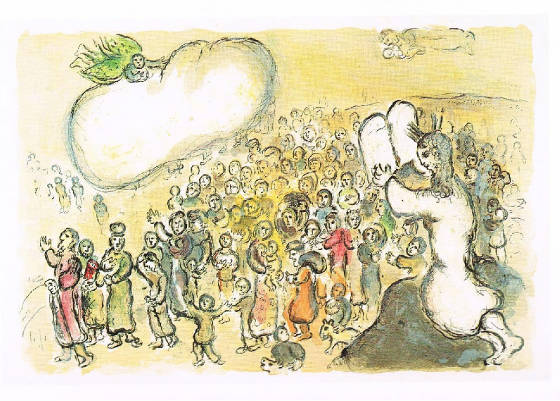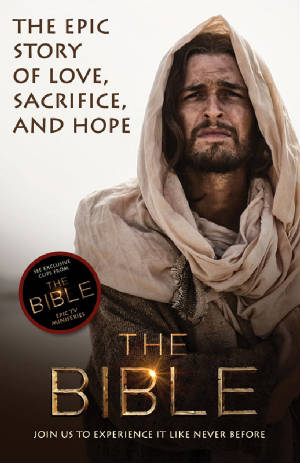|
Monday, January 26, 2015
Past, Present, and Future

Recently, I decided to take a trip down memory lane. That trip started
out as just an evening, but quickly turned into the evenings of a better part of a week playing the video game system I had
as a child: the Super Nintendo. Amazingly, despite being over two decades old, the old girl still works like a dream, and
as at it turns out, so do I. It took no time at all for me to get right back in the swing of things, as muscle memory and
reflexes knocked whatever rust existed off my ability to play Super Mario and Mario Kart and Ken Griffey
Jr. Baseball and Mortal Kombat. Some games, I was still good at, while others weren't quite as successful
(like the stupid Zelda game that I can't even beat with walk-throughs and tips from the internet). But
one game more than any other felt like home: Super Punch-Out. It's hard to explain what
I love about Super Punch-Out. It's just a simple boxing game filled with racial stereotypes, but for whatever reason,
from the moment I first played it, it was my favorite game. As a kid, I rented it from the video store (remember those?) a
dozen times before I actually purchased it, but soon after I bought it, I was the absolute master at it. It quickly became
not a matter of defeating each boxer, as HOW QUICKLY each enemy could be dispatched, and for years, I could play basically
with my eyes closed and my hands tied around my back. And sure enough, as I put the cartridge in and fired up the Super Nintendo
a couple weeks ago, the decade since I'd played it melted away, and I was every bit as good at it as I used to be. Simply put, I have invested so much time into playing Super Punch-Out in my past that it doesn't matter
when I play it in my future: I will always be awesome. *** None of
us know what the future holds. That, more than anything else, makes part of a conversation that
Jesus had with Pontius Pilate so amazing. As Jesus stared down His own impending execution, He told the Roman Governor that
His kingdom was 'not from this world,' and He could prove it: If my kingdom were of this world,
my servants would have been fighting, that I might not be delivered over to the Jews. (John 18:36, ESV) Now, on this side of history, the fact that Jesus' disciples didn't fight to keep Him from being arrested or to set
Him free doesn't sound all that impressive. After all, He needed to be arrested so that way He'd be executed for our sins,
which, in turn, allowed for His resurrection. Why fight that? The reason, of course, is on the
side of history His disciples were on when Jesus spoke to Pilate, none of that was apparent. Sure, Jesus had shared this with
them in ways both cryptic and straightforward, but each time, His followers argued with Him and misunderstood. They didn't
have a clue what was going to happen, and it even took a fair bit of time for them after it actually HAD happened for them
to wrap their heads around it. For all the disciples knew, this was the end; their following of Jesus was all for naught,
as He was simply another notch on the belt of the Roman war machine. And yet, they stayed true to Jesus' teachings. Ok, so Peter needed a little bit of help. But for the rest of them, even as they faced down the end of their rabbi and friend,
they stuck to His teachings. They didn't fight; they didn't use the weapons of the kingdoms Jesus had spent His ministry critiquing.
They had no idea that it would end in victory; quite the opposite, in fact. But despite being ignorant of the future, they
knew that what Jesus wanted was their faithfulness to the beautiful picture of a peaceful, new world that He had taught would
occur when God's will was done on earth as it is in heaven. They didn't know what the future held, but they stuck by what
Jesus taught. Simply put, Jesus was able to brag on His followers with His amazing
statement that proved His kingdom was unlike any other: His disciples were different, even when they had no idea what difference
that could possibly make. *** You are in control of today. You
can't change what you did in your past, and there are no promises as to what your future might look like. But today? Today,
you can choose to say and do and be whatever your heart desires. Most of the time, we lose sight
of that. We get trapped in the rhythms of life, of work and school and our kids' activities and whatever's on the DVR or whatever
we're binge-watching on Netflix. We go through life doing whatever it is we think we're supposed to, we go to bed, and the
next morning we do it all over again (after hitting the snooze button a time or four, of course). And we forget: this is all
in our control. Not everything, of course. There's much that simply happens to us, but even then,
it's our choice how we respond to those things. And that's why, even if the future isn't promised to us, we should always
be working towards a better tomorrow. That's, I think, what Jesus had in mind when He said during His famous Sermon on the Mount that where our treasure is, our hearts will be also. The things we choose to invest in - what we do with
the time and opportunities and circumstances we're dealt in life - will change what our future selves will be like. That explains why Jesus could brag about His followers during His trial to Pilate. They had no idea what would happen
to Jesus or that He would ultimately have victory in the resurrection, but they knew that what they invested in would change
their hearts. And they had chosen to invest in the teachings of Jesus, no matter the cost. And
that explains why I probably shouldn't be proud of how good I am at Super Punch-Out on this side of my 30th birthday.
It's a reflection of the hours - which, when added up, become days and weeks and months - I spent mastering a racially insensitive
game about boxing. That's where I invested a huge portion of the 'treasure' of my time, and that's still reflected in my heart
(not to mention my reflexes and muscle memory) today. This all adds up to one, simple question:
where do you want your heart to be in your not-promised future? What do you want the hearts of your children and your marriage
and your family and your friends to be? What do you want to still be doing decades down the road? The choices you make right
here and right now will determine that. That doesn't mean everything will work out; in fact, if
the earliest followers of Jesus are any indication, sometimes we choose what's best today despite no promise of anything 'working.'
But it does mean that what you spend your time, energy and effort on will bear fruit. What you reap WILL be what you sow;
where you put your treasure WILL guide the direction of your heart. While you can't change the past and you aren't promised
the future, you have treasure today, and what you choose to do with it will determine who you are for whatever time you have
on this earth. Simply put, it's time to choose well.
Wednesday, October 29, 2014
Sarah The Art Dealer

Sarah is an art dealer. And by 'art dealer,' I don't mean that she
represents local artists or has a booth at festivals that smell of kettle corn and pulled pork. I mean Sarah deals in ART.
Stephanie and I met her last week in- of all places- a Dallas mall, when I noticed a few paintings hanging in a gallery. Figuring
we might see an interesting piece or two, we ducked in, and my eye almost immediately caught a piece depicting my favorite
story from the Old Testament:  It's a picture from the Exodus done by someone I'd never heard of named Marc Chagall, and I was immediately
in love. Unfortunately, my jaw hit the floor as Sarah the art dealer told us how much it cost: $10,000. As it turned out, this was no ordinary mall art gallery, and the piece I had fallen in love with was actually one
of their bargain bin selections. There were other pieces of art by names I HAD heard of: People
like Pablo Picasso, and
People like Andy Warhol, and
People like Salvador
Dali.
Those pieces had price tags as high as $180,000, which off the top of my head is enough money to purchase
a nice home in Ashland, two brand new vehicles, and still have enough left over for that Chagall 'Exodus' piece. It was hardly
what we expected from a Dallas mall. Of course, the precious art that was in this gallery were
far, FAR out of the range of what Stephanie and I could even think about talking about purchasing, and if that wasn't apparent
to Sarah when we walked in, it was once we told her that we were respectively employeed at a church and a liberal arts college.
When she found out that we were no one near in the ballpark of being able to be customers, I assumed that Sarah would politely
excuse herself and go do something that could make her some money for the day.
My assumption
was wrong.
Sarah spent close to an hour going through the gallery with Stephanie and I, explaining
each artist, pointing out the subtle nuances of what made each piece truly beautiful, and answering each every stupid question
I could come up with. It was delightful, even for someone as ignorant in art as me, and for Stephanie (whose degree is in
art and art history, and who knew the second she saw the Chagall 'Exodus' what type of place we were in), it was something
she'll never forget. Sarah the art dealer was kind; Sarah the art dealer was gracious. Sarah the art dealer went out of her way to make sure that two nobodies from a small town in Missouri
felt welcome. And Sarah the art dealer did all that knowing full well that she would receive nothing in return. We could
never be customers; we could never give Sarah the art dealer anything. But that didn't matter to her - she treated us as if
we had all the money in the world.
***
One day the apostle Paul preached a sermon to a group of people who were very, very religious. They were so religious, in fact,
that on top of the gods and goddesses they regularly prayed to and worshipped, they built idol to an 'Unknown God,' a deity
they assumed was out there but that they were ignorant of. To these idols, the people devoted time and money; they made sure
the idols were tip-top shape, and they offered food and grain and incense as offerings to make sure the gods were well take
care of. Paul explained to them that their view of the divine was a bit off, for a simple reason: if the gods they were worshipping
were really real, they wouldn't need to be taken care of. They wouldn't need offerings or prayers; they wouldn't need their
idols to be looked after and preserved.
'The Creator of heaven and earth,' Paul explained, 'doesn't live in man-made
temples. Human hands cannot serve His needs, because He doesn't have any needs.'
The fact is that the God of this
universe doesn't need anything from you or I. He doesn't need us to defend Him; He doesn't need us to worship Him; He doesn't
need us to pray to Him. He doesn't need us to know Him or make Him known or even believe in Him. If God is truly God, then
He is so far above us that there's no way that we could ever fulfill His 'needs.' He exists outside of what we know as time
and space and reality, and as a result, we could never offer Him anything that would make Him stand up and be impressed.
Simply put, God doesn't need us.
And yet, Paul continued in his sermon, the God who doesn't need us to
serve Him has chosen to show us kindness and mercy and love. 'He Himself gives life and breath to everything, and
he satisfies all of our needs,' the apostle preached. 'And He isn't far from any of us - in Him, we live and move and exist.'
We have nothing to offer God. Because of that,
God has no reason to offer
us anything. And yet,
God has provided for us all that we could ever need.
That's good news.
***
One day, Jesus encountered a man who couldn't walk. The only hope that man had was in a piece of Jewish superstition that
revolved around a particular pool of water that supposedly had healing properties. Unfortunately, the man's inability to walk
also inhibited his ability to get into the that pool of water, and no one he encountered in his everyday life cared enough
to help him. As harsh as it might sound, it's easy to see why: a man who can't walk can't work, and therefore would have had
nothing to offer in return to whoever helped him into the pool. Caring for others
is easy when they have something to offer you in return. But,
Caring for others is nearly impossible when they don't.
Because of that,
People don't often care about those who have nothing to offer
them. Jesus was different. Jesus reached out to the man and healed him, and in
doing so showed that even if no one else cared for the man, that the God who had created Him - the God who could never be
served by human hands - did. And in doing so, Jesus showed in action what He had been teaching all along: that God loves everyone,
even the most unlovable in society.
I was inspired by the inclusive, unconditional kindness of Sarah the art dealer.
We had nothing to offer her, and she didn't care. In the hour we spent looking at and talking about art we could never afford,
the good news of Christ shone through her kindness. Truth be told, I hope that I can be more like her.
By that,
of course, I mean I hope that I can be more like Jesus, who showed us a God who chooses kindness and care for those who could
never offer Him anything in return. And when that's a goal that we all shoot for, then we become the church that God has always
wanted us to be; a church that cares for everyone, even those who have nothing to offer us in return. And when we do that,
we become a church that has something for the world around us:
Good news.
Monday, October 20, 2014
Roots, Sexuality, and Purpose

They were outcasts and misfits. Ostracized from the religious insitutions they had given their lives
to, they found themselves at a crossroads - did they need a larger theological body to oversee their ministries? Or could
they, with the guidance of the Holy Spirit and a commitment to the Holy Scriptures, go it alone? Looking back, the answer
seems obvious. But at the time, it was a difficult question, and to decide to go it alone was a path filled with hurdles,
pitfalls, and difficulties.
As I sit writing this, I do so in large part because of the paths forged by men like
Alexander Campbell and Barton Stone, whose influence roughly 200 years ago caused the formation of what would come to be called
the 'Restoration Movement.' While the Reformation of Luther, Calvin, and others had sought to fix what was wrong in the organized
church, Campbell and Stone took another tact altogether. Instead of even worrying about what others were doing, they simply
wanted to go back to the principles of the original, ancient Christian Church found in the pages of the New Testament. Doing
so bred a loose set of beliefs and statements that perfectly encapsulated who they wanted to be as free, independently thinking
Christians. 'We have no Creed but Christ!' they said, rejecting set theological mantras
that everyone had to adhere to for church membership. 'Where the bible speaks, we'll speak,
and where the bible is silent, we'll be silent!' they proclaimed, humbly admitting that their humanity could get in the
way of the divine message that Jesus wanted them to accept. 'We aren't the only Christians,
but we are Christians only!' they asserted, refusing to pass judgment on other traditions and Christian groups, instead
focusing on their own faith and allowing others to focus on theirs. The Restoration Movement
wasn't perfect; far from it. And, as all groups tend to do, eventually it splintered off into other groups. Some formed denominations,
helping lay the groundwork for United Church of Christ and the Disciples of Christ; others chose to remain independent, with
the Independent Christian Churches and Churches of Christ coming along as a result. There were disputes and arguments, dark
days and difficult moments, but through the imperfect but sincere desires of those who simply wanted to be Christians, churches
like Ashland Christian Church came to be. *** On the one hand, to
many Christians, the bible seems so clear on homosexuality. There aren't many passages on the subject, but a cursory reading
of both the Old Testament Law and New Testament epistles shows that intimate relationships between members of the same sex were frowned upon. And while Jesus
didn't explicitly mention homosexuality, His definition of divinely approved relationships seemed to rule them out. It seems so simple: a bible believing, Spirit-filled Christian should conclude that
gay Christians are an oxymoron, for the same reason that 'adulterous' Christians or 'greedy' Christians are an oxymoron. Sin
is sin, and we aren't to be defined by our sin, but, rather, our commitment to to the teachings of Jesus.
On the
other hand, to other Christians, the bible seems so unclear about homosexuality. There aren't many passages on the subject,
but a deeper reading of the context of both the Old Testament Law and New Testament epistles shows that the cultures and societies
that the Scriptures were written in and to were vastly different than our own. As a result, each time that homosexuality is
mentioned, it's in conjunction with other sins like prostitution, rape, and idolatry. The concept of loving relationships between members of the same gender is simply not a concept that was on
the radar of the biblical writers, which explains why Jesus never mentioned them. It seems so simple: with cultural differences
and a lack of clear direction by the one whose example we're to follow, it's impossible to say with any clarity that one's sexual orientation is or
is not sinful. And just as we've moved on from ancient social customs like slavery and women being seen as immodest because of their jewelry and braided hair, accepting gay Christians is a fundamental part of loving one's neighbor in 2014,
and doing so is a natural outpouring of our commitment to the teachings of Jesus. *** The
purpose of Christianity is simple: life. Jesus came to show us an abundant life that will last for eternity, and those who believe in His message are born again to a new life, having passed from a death-like state of existence to a vibrant, thriving aliveness with God at the center. A life with God at the center is a life with love at the center. But what happens when we disagree on just how we should live
this life? What happens when two sides of an argument reach a stalemate, when two groups dig in, Scriptures, ideologies and
theologies in hand, and can find no common ground? How can a life of love exist when we simply can't agree on what direction
God wants us to go in?
This is a question that is far from new. In the ancient, original
church that the Restoration Movement wanted to emulate, there were divisions between Jews and Gentiles, those who followed
different apostles, and people from different religious and social traditions. The early church was a church of fishermen
and Pharisees, of eunuchs and Roman Centurions, of murderers and saints. It was a church that could be compared to a body; while they were all individual members of one whole, each individual as as different as a foot is from a
hand or an ear is from an eye. And through the writings of the apostle Paul, we find that they didn't so much settle disagreements
as they agreed to disagree. From time to time, they agreed to allow each person to answer to God alone, and they prioritized love and deference to one another over their own individual
desires to be right. In other words, they decided to have no creed but Christ; they decided to
speak where the Scriptures spoke, and stay silent where they were silent; and they declared that while they were only Christians,
that they were far from the only Christians.
It is possible to believe that homosexuality is a sin and be fully committed to Christ, filled with the Spirit of God,
and a careful student of the Scriptures. And, It is possible to believe that homosexuality is not a sin and be fully committed to Christ,
filled with the Spirit of God, and a careful student of the Scriptures. In the ancient church,
there were disagreements; they chose love. In the roots of the Restoration Movement, there were disagreements; they chose love. In today's church, there are disagreements; we can choose love. I'm not interested in swaying your viewpoint one way or the other on homosexuality; your opinions
are between you and the God that you worship and serve. What I'm interested in is the church being a place where everyone
- even outcasts and misfits who have been ostracized from other religious institutions - is welcome to experience the life-giving
gospel of Christ and the freely offered gift of the Holy Spirit. I'm interested in a church where the table of communion and
the waters of baptism are welcome to everyone, and where differences of opinion aren't a barrier to real fellowship. I'm interested
in church that allows people to ask questions, allows people to be themselves with their own uniqueness coming from their
own hearts and minds, and simply points people to the God who made them, loves them, and wants to spend eternity with them.
I'm interested in the church I read about in the New Testament and that men like Alexander Campbell and Barton Stone dared
to dream about.
Ashland Christian Church may not always be that church. But I can say one
thing for sure: that's the church we are trying to be, and no matter who you are, we will always welcome you on that journey
with us.
Wednesday, April 3, 2013
The Worst and the Best of Religion

True story: a few years back, I was hanging out with a young member of ACC watching movies. Somehow
or other we got on the subject of how cool it would be if a big-budget Hollywood studio got ahold of the stories of the Old
Testament and turned them into films. From Moses to Samson, David to Daniel, there's more than enough blood and gore and drama
and intrique and special effects to go around - it would be amazing! A month ago or so, I got
a Facebook message from that same ACC member that said, simply: 'Someone took our idea. And it's awesome.' He was talking about, of course, the History Channel's 'Bible' miniseries, which, if I'm to believe the entirety
of the congregation at ACC that talked to me about it, is, indeed, awesome. Not being a cable or sattelite customer myself,
I waited until it was released on DVD to snatch it up, which I did yesterday from Amazon. And it was then that I made a mistake: I decided to look at the reviews. Yes, the majority of the reviews are positive. But others are so negative you can practically feel the
anger spewing from your computer monitor. And those reviews - the scathing, hostile, vitriol filled reviews - aren't written
by skeptics or atheists or people mocking the idea the the bible is the truth, as one might expect. Instead, they're written
by devout Christians. A quick skimming of these reviews reveals that there were details wrong,
the messages were not clear enough, and sin was not condemned enough; the series is deceiving, blasphemous, and from the wrong
translation; the writers are representing a politically correct, watered down, false gospel, and they're doing so maliciously,
to turn people away from the truth about God. Now, obviously I haven't seen the series, so I can't
speak about just how good it is or isn't. But the hostile reviewers are people I've seen in the church as long as I've been
in it. For these people, the History Channel making a 10 hour documentary about the bible isn't cause for celebration; it's
cause for crticism. For these people, their differences in opinion aren't evidence that there's diversity and variety in the
church; it's evidence that there's apostacy and blasphemy and false Christians. For these people,
nothing is ever good enough. And that makes me sad. Really, truly, profoundly so. Because what
type of life is that? What type of faith finds fault with everything and everyone around them? What kind of security can there
really be when one finds the need to shout down anyone with a different perspective than them? And what type of peace can
there possibly be in the heart of a person who thinks that angrily typing out reasons why the rest of the world is going to
hell is a good use of their Tuesday? This is the very worst of religion. And it breaks my heart
to see it. After I ordered the series, I went back to reading the book I had filled my afternoon
with. It's the newest from a personal hero of mine and my favorite 'Christian' writer going today, Rob Bell. The book is called What We Talk About When We Talk About God, and it just so happens that he was writing about the way many in the church view the gospel. According
to his experience, there are tons of people in the church who trust in grace, mercy or love, but instead, a point-based merit
system to earn God's favor. That, he said, is not the gospel of Jesus. Instead, he writes, Gospel
is the shocking, provocative, revolutionary, subversive, counterintuitive good news that in your moments of greatest despair,
failure, sin, weakness, losing, failing, frustration, inability, helplessness, wandering, and falling short, God meets you
there - right there - right exactly there - in that place, and announces I am on your side. As I read those words, I had two thoughts. The first one is one I have very often when I read Bell's work - 'I wish
I had written those before he did.' The second, however, is the reason I'm writing this blog: I
wish religious people could see that the gospel of Jesus is as amazing as it is. It is, clearly, the best of religion. There is so much freedom in knowing the truth about Jesus. We don't have to be right about everything; we don't have
to be better than anyone else; we don't have to have answers to the entirety of life's questions. We
are loved, just as we are, exactly where we are. And there is nothing better than living life according to that fact, trusting
in the Savior who paid everything to separate us from our mistakes, failures, and closet skeletons. In that faith there is
real peace, honest security, and a faith that is anything but heart-breaking. That's a true story,
no matter what you think about the History Channel.
Tuesday, December 11, 2012
Italian Subs.

I love sandwiches.
I realize that isn't the most unique thing about me. After all, sandwiches
are far from unique in and of themselves, and eating them is something that roughly 10/10 Americans do on a regular basis.
But what I think IS different about me is that I love sandwiches (particular sub sandwiches) more than I love just about any
other food. If given a choice to go just about anywhere to eat, I will choose, almost every time a place with subs. And, if
my life ever takes a u-turn and I am given the chance to choose a 'last meal' before my execution, I'm probably going to choose
a sub over every other food.
So, like I said, I love sandwiches.
More specifically than that, I love
Italian sub sandwiches, and every sub shop I go to, if possible, I order the Italian sub. But even though each one is called
an 'Italian Sub,' each one is different:
- Subway's isn't the best, but I've eaten it for so long (including
four years of employment as a Sandwich Artist) that even though I know it isn't very good, I still love eating them.
- Penn Station's is outstanding, especially for a hot sub (I prefer them cold), despite it's high price.
- Fire
House's is as good as Penn Station's (and very similar), though it has more meat on it (and the more meat the better).
- Goodcents' is my go-to - it has the best combination of quality and price, and their bread is as soft as a pillow.
Anytime you can compare your bread to a pillow, that's a good thing.
- Jimmy John's is the one I love the most,
even if they always put too much lettuce on it.
On and on I could go. The point, though, is this: an Italian Sub
is an Italian Sub, no matter where you go. They all have pepperoni and salami and provolone cheese and spicy mustard and some
type of ham and some type of peppers. And while each one brings something different to the table, they're all pretty much
the same.
Why do I bring this up? Simple - the church is just like an Italian Sub.
And, by 'the church,'
I mean the church at large, not just the church I'm affiliated with. Sure, there are differences between denominations and
traditions, but just like every Italian Sub has the same main ingredients, each church that centers itself on Jesus Christ
has enough in common with every other that the details shouldn't matter. A church should just be a church.
'But
Drew!', you may be interjecting. 'What about all the differences between churches? What about sound doctrine and practice?
WHAT ABOUT BEING BIBLICAL!?'
To which I reply, good questions, all of them (though there's no reason to shout).
The truth is, while Jesus undoubtedly called for unity, among His earliest followers, unity did NOT mean conformity. In fact, during the first generation of believers, there was a major disagreement about how Jews and non-Jews could possibly co-exist in the same church. That was an understandable concern; after all, the
Jews held tightly to their past (divinely given) traditions, and non-Jews didn't. How could they possibly be united?
The answer, as it turned out, was fairly simple: they compromised.
I know - that's radical thinking. But it's really what happened. Instead of fighting about what made them different,
they celebrated that what Jesus did, He did for everyone, and the new way of life they led was one that transcended cultures
and social constructs and traditions. They were able to co-exist, not because they all thought alike or acted alike, but instead,
because they recognized that while there were a great many differences between them, that in Christ, those differences simply
didn't matter.
Diversity, then, was okay. It was even celebrated and encouraged.
There's a lot we can
learn from them, and we can start by recognizing there's a lot that we can learn from the various 'types' of Christians that
are out there.
We can learn a lot about self-discipline and perseverance from liturgical churches.
We can
learn a lot about passion and excitement from charismatic churches.
We can learn a lot about biblical accuracy from conservative
churches.
We can learn a lot about unconditional, scandalous love from progressive churches.
We can learn a lot
about living out our faith in outside of the four walls of the church from our brothers and sisters who don't attend any church
at all.
In the end, then, we need to realize that while each Italian Sub is different, every Italian Sub has something
to bring to the table. And while each Christian is different, every community of Christians has something to bring to the
table as well. Sometimes, the grace we need to offer the most isn't just to those who are separated from God and in desperate
need of salvation, but instead, is to the Christian brother or sister that we've ignored for so long because, in our mind,
they're 'wrong' or 'heretical' or just 'different.' We need to realize that Christ never demanded conformity to anyone other
than Him, and that conformity has always been possible in a welcoming, diverse environment of honest faith.
I realize
these thoughts aren't that unique. In fact, they're precisely what so many have said over the last two thousand years of an
ever-changing, ever-evolving faith in the never-changing, completely transcendent Christ. So, why do I bring them up?
Jesus wants the church to be well; He wants His bride to be one of grace, compassion, and understanding. He wants that because
loves the church. He loves her desperately, unconditionally, and in a way that none of us can truly put into words.
He even loves her more than I love sandwiches.
Tuesday, September 18, 2012
Champions.

This just in: people like sports. I know, I know - this is hardly earth-shattering,
life-altering stuff. To say that people like sports is roughly as profound as saying 'people eat food' or 'people breathe
air.' The fact is, I can think of only a single person off the top of my head who doesn't like a sport of some kind, and even
if you say, 'not me, Drew - I don't like sports!' I'd imagine I can find a time in your life when you cared at least enough
to go to a Super Bowl party or check the paper for the score of your local high school team. In this day and age, sports are
an indelible part of who we are as a society. And, I'm not sure that's always a good thing. Take, for example, a team that most of you reading this are more than familiar with: the St. Louis Cardinals. The
Cardinals are, without a doubt, one of the premier franchises in the history of the National Pastime, and that's never been
more apparent than over the last decade. Over a ten year period, the Cardinals have been a playoff team six times, five of
which resulted from winning their division. And, most importantly, they've won the World Series twice - in 2011 and 2006. As strange as it sounds, though, the two seasons that the Cardinals won the World Series were NOT the best two Cardinal
teams over that span. After all, just look at their win totals from their playoff bound years: 2004:
105 2005: 100 2002: 97 2009: 91 2011: 90 2006: 83 The point is obvious - judging by
consistent, full-season play, the two years in which the Cardinals won the World Series were the two WORST seasons among Cardinal
playoff years. The irrefutable fact is that the Cardinals in 2006 and 2011 were a worse baseball team than they were in 2002,
2004, 2005 and 2009. And yet, they were crowned champions for one reason and one reason only: In
sports, consistency doesn't matter. All that matters in sports is getting hot at the right time.
This isn't just true in baseball, either; just ask the defending Super Bowl Champion New York Giants (the sixth best team
in their league last season). There are too many examples of this across too many sports to count, and that's because we've
collectively decided that the best way to judge a sports team is by what they do in a short period of pressure-packed time.
Excellence over time is celebrated with a t-shirt and memories from die hard fans; excellence for a few weeks in October is
immortalized forever with banners and prestige from the entire sports watching world. It's no
wonder, then, that the same people who celebrate short bursts of greatness over long-term consistency sometimes struggle to
live out the Christian faith. Christianity, after all, is not like a playoff system where entire legacies are built one game
and one at-bat at a time. Instead, following Jesus is like a 162 game season - every day, rain or shine, no matter what else
is going on. It's not a sprint; it's a marathon - it's not a playoff series; it's a full season. The apostle Paul wrote, more than 25 years after his conversion, that he had yet to reach his goal.
Despite two and a half decades of service to Christ - church planting and making disciples and growing personally in his relationship
with God - he still wasn't done. At the core of Paul's faith was the concept of daily running the race, knowing that he wouldn't
'win' because he had a few days or a few weeks of trust in Jesus, but instead, that he would need a lifelong commitment to
be where he wanted to be. That type of excellence is simply not celebrated in our world, and if
you don't believe that, you need to look no further than the St. Louis Cardinals, a team whose best years are forgotten and
whose short bursts of greatness will always be remembered. That's not how you follow Jesus, however. It isn't just about momentary
decisions to trust Jesus and decide to believe in what He's done; it's about waking up each day and deciding over and over
again to keep believing and keep trusting, even when you know that you're not going to 'win' that particular day. It's high time that we in the church celebrate what the sports world never will: consistent, long-lasting, committed
faith. You're not finished just because you've been baptized or saved or joined a church; in fact, you're just getting started!
Forgetting the past, we shouldn't live as if we've achieved anything yet. Instead, we should press on, making the choice to
daily follow Jesus, moving forward towards the goal each and every day, knowing that eventually, this life will be over and
the real - eternal - journey will just be beginning. And that's an attitude we should get used to. After
all, I hear eternity lasts a little longer than a few weeks in October.
Tuesday, September 4, 2012
Bill Nye.

When I was a kid, there were few shows on television that drew me in more than 'Bill Nye the Science
Guy.' This is a fact that isn't surprising - after all, as the son of a public school teacher and a chemist in a pharmaceutical
lab, I was raised to appreciate science in a way that most kids weren't. Additionally, it was on Saturday afternoons, right
before FOX Saturday Baseball, and, in a household of six people, the earlier you could plop yourself in front of the television
to claim it on a weekend afternoon, the better. In my book, Bill Nye is a pretty good dude. Also, apparently Bill Nye isn't a huge fan of those who teach their children that evolution isn't true. As always, Bill Nye's comments have drawn the typical responses, with the battle lines between the religious and the not so much clearly drawn in the sand. And that makes me profoundly
sad. Full disclosure time: I'm not sure what I believe about the origins of mankind.
I believe in God; I believe in science. And at no point in my 28 years on this planet have I ever believed those two beliefs
are incongruous. The truth is, we're all just guessing - whether the world formed, as hyper-literal Christians claim, 6,000
years ago or, as mainstream geologists claim, 4.2 billion years ago, none of us were there when the earth formed. So we're
all just looking at whatever evidence we can find and making the most educated guess possible. With that said, I have opinions
about the beginning of everything, but considering they all begin with, 'I'm not sure, but I think...' and are hedged with,
'I could be wrong, of course...' I'm not sure they're really of any value. I find no reason I shouldn't be able to believe
that Jesus is the creator of all things and not worry about exactly what the mechanics of that creation were. None of that, however, is what makes me sad. Jesus told His disciples that they'd be
known for one thing: love. He taught them to love each other, to love God, and to love their neighbors.
He even taught them to love their enemies and, when persecuted, pray for the ones who attacked them. And because of that,
the early church proclaimed a very simple message of love - the story of who Jesus was, what He had done, and what He wanted
to do next. They called that message the 'gospel,' and were willing to suffer, bleed and die for that good news. The fact is, the gospel is outrageous. It demands scrutiny and well-thought out study to support, and it demands
radical sacrifice, introspection, and commitment to live. Without any other periphery issue, the gospel - and the gospel alone
- was enough to earn the early church persecution the likes of which we in America have never dreamed of. Which is why, I think, we don't see the early church engaging in debates about side-issues. Because they were so
busy promoting the gospel, they didn't have time to worry about anything else, and as a result, we don't see arguments or
controversies about anything BUT the gospel in the early church. What makes me sad is that
today, we've lost that passion for the gospel. And because of that, we have all the time in the world to argue about evolution
and gay marriage and political party agendas and denominational theologies and a million other things. And as a result, the
disciples of Christ today aren't known for their love; they're known for their desire to prove themselves right and everyone
else wrong. Bill Nye's comments (as well as the viewpoints of countless others who believe
what he believes) shouldn't be seen as an opportunity to win an argument or prove why we have all the answers to all of life's
deep questions. Instead, it's time we acted a little less like mainstream Christianity and a little more like the ancient
bride of Christ, and saw this as an opportunity to show love, grace, and understanding to those who don't see eye to eye with
us. If we do that, we'll be choosing a path that Jesus said His followers would be known for, more than anything else. We'll be choosing the gospel.
Thursday, August 9, 2012
Jesus.

I get sick to death of Christianity. If you've been in Ashland Christian
Church's Adult Cultivation Class at any point this Summer, you've heard me say those words. And while they may seem overly
cynical or, going to the extreme, a bit inappropriate for someone in full-time Christian ministry to say, they're the truth.
The reason is simple - the very simple way of Jesus has, over the last couple thousand years, evolved into something that,
more times than not, exhibits as much of the world's ugliness as it does the beauty of God. Take
last week's Chick-Fil-A fiasco, which, sadly, played out precisely like every other quasi-theologial debate has in my sixteen
years in the church. What could have, and should have, been an opportunity for level-headed, Holy Spirit inspired converation
on how we can best reflect the love of Christ in a world that sorely needs it, instead became the intellectual equivalent
of a back yard brawl. Both sides of the conversation quickly resorted to using the weapons of the world - guilt and fear and
manipulation - to try to 'win' whatever it was they were trying to win, whether it was 'standing for the truth' or 'setting
themselves apart from the crazy Christians' or anything in between. The end result was, sadly, yet another black eye for the
faith, as a community that's supposed to be so changed by God's love that they become vessels of that compassion and mercy
to others, turned into yet another mob of people all jockeying for personal gain, the advancement of political agendas and
the so-called 'moral high ground.' And the worst part of all is that I'm a
part of it. That's, at the end of the day, why I get so sick of Christianity - so often, it brings
out the worst in me. It doesn't matter whether we're talking about chicken sandwiches or the rights of the unborn or the role
of baptism or spiritual gifts or women in the church or musical styles or small group methods or whether or not the President
of the United States was born in this country. No matter what it is, every time I find myself in a theological or social Christian
debate, I find myself acting less and less like Christ and more and more like the world. And there's a good reason for that. After all, when we fight over social, political, and quasi-theological side issues, we're NOT promoting the simple gospel of Jesus. And that's what I never get sick of, which is why we've spent a solid three months in Sunday School
in the Sermon on the Mount. Jesus' words are life-changing and course-altering; they speak to the heart and the soul and the depths of who we
are; they transcend social boundaries, prejudices and bigotry. And when we make them the foundation of who we are, we'll become
more and more loving and gracious and compassionate, because we'll become more and more like Jesus. I
don't have all the answers to life's questions, and honestly, I don't care to. It doesn't always matter who's right and who's
wrong and whether or not we 'win'; in fact, you can be totally wrong about nearly everything and still be the person Christ
wants you to be, since all that TRULY matters is whether or not our relationship with our loving God helps us to love others. That's the gospel; that's
the essence of the kingdom Jesus is the King of. And that's something that I'll never get sick
of.
Friday, July 20, 2012
Enemies.
 Jesus loves the members of the Westboro Baptist Church. So much, in fact, that He died on a cross
for them, and when He rose from the dead three days later, He made it possible for them to be eternally saved, living forever
with Him in the next life. And this fact is unchanged by the sins of the members of the Westboro Baptist Church - no matter
how much damage they do in God's world, Christ's love and grace is still available to them. Jesus loves the members of the Westboro Baptist Church. So much, in fact, that He died on a cross
for them, and when He rose from the dead three days later, He made it possible for them to be eternally saved, living forever
with Him in the next life. And this fact is unchanged by the sins of the members of the Westboro Baptist Church - no matter
how much damage they do in God's world, Christ's love and grace is still available to them.
I've written about
the WBC before, but I'm not sure I've ever typed the exact combination of words above before. I have to admit - it was a little
hard. Of all the people in the world who are hard to love, the WBC is, without a doubt, at the top of the list for me. No
group of people has twisted the bible more; no group of people have used Jesus to spread hate, bigotry and hurt more; and,
unfortunately, no group of Christians is more famous in America, meaning their reputation has done untold damage to the cause
of Christ and His kingdom.
But still - Jesus loves and died for everyone. And 'everyone' includes them.
As you've no doubt heard by now (I'm definitely late to this party),
the WBC will be in Columbia tomorrow to protest the funeral of a fallen Missouri soldier. And most of us have responded in the way that
feels most natural - with outrage. We want to do something about the WBC, even if it's as simple as changing our Facebook
profile pictures for a few days, and even if it's as dramatic as meeting the WBC face to face in support of Sterling Wyatt's family.
While we're doing all of these things, we need to remember one thing:
Jesus has already told us what to do in cases like this. The WBC is, in so many ways, our enemy - and we're supposed to love our enemies. Not because
they deserve it, and not because it will make everything hurt less; but instead, we're supposed to love our enemies because
there is no one who is so far away from God that they are outside of the scope of His love. He loves them, and so should we.
This is, perhaps, the single hardest of Jesus' instructions. But it's what has marked God's people as God's people
for the last two thousand years - the church has been, from day one, known as a people of love. And
so long as there are enemies in the world like the WBC, there will be a need for us to step up to the plate and be different.
So, tomorrow, remember love. If you're going to see the WBC face to face, do it with a smile, and maybe
take them a glass of water when it gets particularly hot. And no matter what, tomorrow, all of God's people should be praying
for God's peace in Columbia - for both the Wyatt family and the Westboro Baptist Church. After all, when we respond
to their hate with more anger and bitterness and hostility, they win. And when we respond in love?
Jesus does.
Tuesday, June 26, 2012
Failure.

Very often, I feel like a failure as a minister. Not all the time, obviously.
Much of the time I feel pretty good about the way that I do my job, and there are even some things that I almost always feel
good about. I'm not fishing for compliments here; I wouldn't trade the past six years for anything, and I know that I'm not
the worst minister on the planet. It's just that sometimes it really feels like it. I feels like
it days that people ask for things I simply can't give them, and on days when people come to me for advice and support and
I have absolutely no idea what to say. It feels like it on days that the Sunday morning attendance
is particalurly dismal. It feels like it on days I'm told that something I said is the reason
that a family is looking for a new church, on days that someone complains about 'the church' with a long list of things that
are really about me, and on days that I ask a question in bible study about something I say every week on Sundays and no one
knows the answer. It feels like it when I tell a story with eight jokes in it and no one laughs,
and conversely, when I tell a story that's supposed to be serious and everyone laughs. It feels
like it when I spend a week beating my head against the way writing a sermon, only to preach on Sunday that 'I don't know.' It feels like it when there are several weeks in a row where no one is baptized at ACC, and it feels like it when
someone is baptized and we never see them again. It feels like it when I have to bail on plans
I've made, and it feels like it when there are no plans to bail on. It feels like it whenever
I see my minister-colleagues Facebook pages (that are always filled with bible verses and happy messages), and websites (which
are always flashy and state of the art). I feel like it every time I see one of those minister-colleagues and I hear about
how wonderful their ministry is going. And I especially feel like it whenever I read a book on ministry that has all the answers
to why it is that I fail at my ministry. The truth is, I feel like a failure quite a bit. But
I think also that I'm not alone in this. After all, nobody's perfect, and frankly, nobody's close. And whether it has to do
with their job or their parenting or their marriage or simply the way they view themselves, I've learned that most people
are walking around with some level of insecurity. No matter how much good that we do in our lives, it's rare that we focus
on the positive aspects of our lives more than the negative ones. That's why it's so encouraging
to see who exactly it is that God has used to impact this world. From Abraham to Jacob to David to Daniel to Moses to Samson,
the Old Testament is littered with those who, frankly, sucked as human beings. And once Jesus came to establish the Kingdom
of God through His disciples, they failed over and over again as well. It didn't matter if they were in the 'inner circle'or if they were simply the 'other guys'; at the end of the day, they all failed in all sorts of ways at following Jesus. But
amazingly, God understands. He gets that we will, very often, suck at being the people He made, and He understands that even
when we try our absolute best that we won't be able to be perfect. That's why the beauty of the gospel is in God's grace,
and why Jesus said that the true triumph of discipleship in not in our victory over evil, but in the day to day, consistent
involvement in our lives of God. I say each week at Ashland Christian Church that we aren't a
perfect church, and that starts with me - someone who feels, more often than not, like a ministerial failure. But the truth
is that with God's grace and God's involvement in our lives, perfection - or even us being adequate - isn't necessary. Where
we fail, God succeeds. And in the end, that's all the success that we'll ever really need.
|

